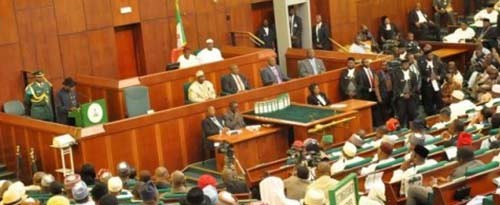The House of Representatives has resolved to investigate thousands of abandoned Federal Government properties and buildings scattered across the country, which are reportedly worth more than ₦20 trillion.
The lawmakers reached the decision during plenary after adopting a motion of urgent national importance sponsored by the Minority Leader, Hon. Kingsley Chinda (PDP, Rivers).
The motion seeks to uncover the reasons behind the neglect of valuable public assets, recover them for national use, and prevent further waste of taxpayers’ money.
In moving the motion, Chinda cited Order 8, Rule 5 of the House Standing Orders and Sections 88 and 89 of the 1999 Constitution (as amended), which empower the National Assembly to conduct investigations in the public interest. He said the step had become necessary due to the alarming number of abandoned government projects and properties across the federation.
According to him, the decision aligns with the House’s constitutional responsibility to ensure accountability and protect national assets from decay and illegal occupation.
Chinda referred to a 2021 report by the Nigerian Institute of Quantity Surveyors (NIQS), which documented about 11,866 abandoned federal projects across Nigeria. The report stated that these abandoned sites represent nearly 63 per cent of projects initiated by successive governments since Nigeria’s independence.
He noted that the long list of neglected properties includes the Federal Secretariat Complex in Ikoyi, Lagos; the Nigerian International Hotel Building, Suleja, Niger State; the Millennium Tower in Abuja; the Federal Inland Revenue Service Building in Abia State; the National Library Headquarters in Abuja; the Nigerian Newsprint Manufacturing Company in Kaduna; the Kaduna Textile Building; and the Nigerian Aluminium Smelting Company in Delta State, among others.
The Rivers lawmaker lamented that many of these structures, once symbols of national pride, have become derelict and overtaken by weeds, illegal occupants, or vandals. He said their abandonment reflects years of poor maintenance culture and lack of continuity in government projects.
Chinda further expressed disappointment that the Presidential Implementation Committee on Federal Government Properties, established in 2000, has failed to submit its final report after more than two decades of operation.
“The House is concerned that the Presidential Implementation Committee on Federal Properties, established in 2000, has yet to submit its final report, raising issues of accountability and transparency,” he said.
He warned that the absence of proper documentation and monitoring has allowed valuable national assets to deteriorate, leading to the loss of potential revenue and employment opportunities.
The lawmaker also noted that inflation, outdated engineering designs, and decades of neglect have further reduced the value of many of the properties. “The longer they remain unused, the more they depreciate,” he said.
Chinda proposed that the Federal Government explore public–private partnerships (PPP) to rescue and put the properties to productive use. He argued that involving the private sector could help rehabilitate the facilities, generate revenue, and stimulate economic growth.
“The Federal Government can rescue some of these assets through PPPs to prevent continuous wastage, structural weakening, and further loss of value,” he added.
Following his presentation, lawmakers from both sides of the chamber supported the motion, describing the situation as a national embarrassment that requires urgent action. They called for a holistic approach to asset recovery and better monitoring of future government projects.
After deliberations, the House adopted the motion unanimously through a voice vote.
An ad hoc committee will now be set up to investigate the abandoned properties, review existing reports, and verify their current condition. The committee is expected to recommend ways to recover and redeploy the assets for public benefit.
The House directed the yet-to-be-constituted panel to consider possible private sector participation and strategic reuse of the properties in line with modern development needs.
Lawmakers also instructed the committee to submit its findings and recommendations within six weeks for further legislative action.
Analysts say the move could help Nigeria recover billions of naira in wasted investments, especially at a time when the country faces mounting debt and dwindling revenue. If properly implemented, the investigation may also expose past cases of corruption and asset mismanagement in government agencies.
The proposed probe adds to growing calls for accountability in public asset management, as several federal buildings, hospitals, factories, and housing estates across Nigeria remain uncompleted or unused, some dating back to the 1970s.
Many observers believe that reviving these assets through transparent processes could support job creation, boost infrastructure development, and ease the government’s financial burden.
